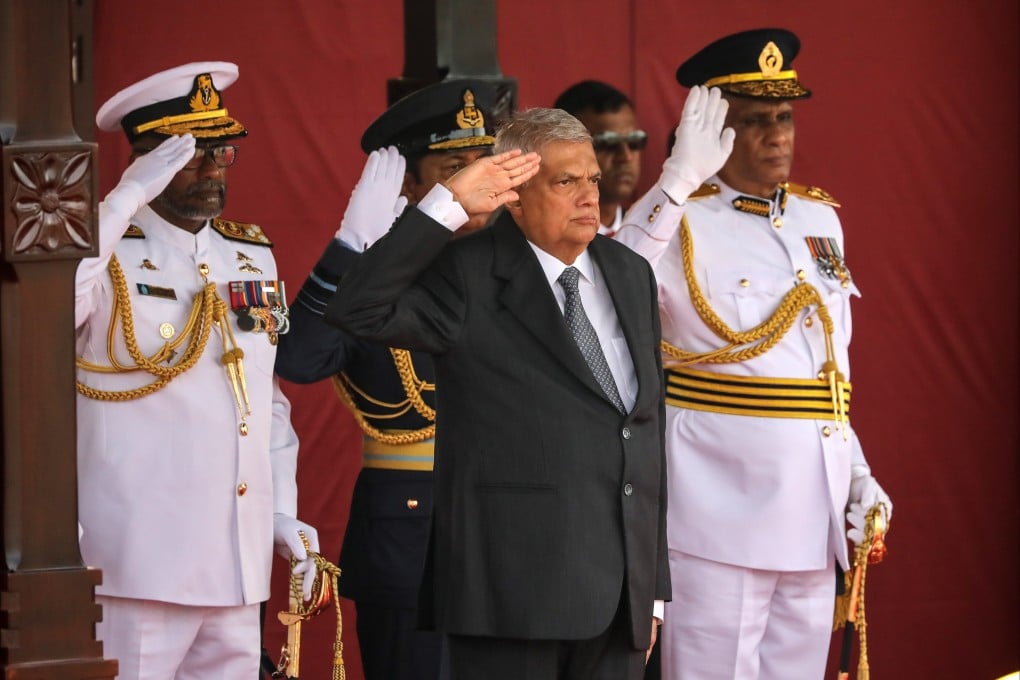Sri Lanka urged not to let debt to India take on different ‘complexion’ in energy talks
- President Wickremesinghe’s visit will occur as Sri Lanka negotiates debt with major bilateral creditors including India and China
- Colombo must be careful to protect its security interests even while trying to secure energy projects with the likes of Delhi and Beijing, experts say

Sri Lanka’s Foreign Minister Ali Sabry last week said officials would discuss renewable energy projects, a potential oil refinery, an energy hub and a port in eastern Trincomalee, adding that talks on an undersea cable between the countries could also be revived.
Wickremesinghe’s Friday visit comes about a year after he was elected president through a parliamentary vote. It also takes place following Colombo’s US$2.9 billion bailout from the International Monetary Fund (IMF), and amid Sri Lanka’s efforts to negotiate its debt with India and China. The former held about 9 per cent, and the latter 20 per cent, of Sri Lanka’s total public external debt of US$40.7 billion at the end of 2021.

India has been gaining a foothold in Sri Lanka’s energy sector over the past year, with the Adani Group winning a US$442 million wind power project in the northern region of Sri Lanka in February this year.
Last year, Indian Oil Corporation’s subsidiary, the Lanka Indian Oil Company, was given a 41 per cent stake by the Sri Lankan government to renovate 61 tanks in the Trincomalee oil storage facility. It will also operate another 14 oil tanks for five decades.
The multiple interests in Trincomalee means it will remain “India’s turf” for the foreseeable future, said Uditha Devapriya, chief international relations analyst of Factum, a Sri Lankan foreign policy think tank. “India will always consider those too strategic to be allowed to pass on to the hands of other powers,” he said referring to China and India.
[Sri Lanka] has to be very careful in handling energy projects, because there are some elements of our own security attached to this
Trincomalee is considered one of the largest natural harbours in the world and was a trading port for centuries. Under colonial rule, Trincomalee developed into an important fort from the 17th to the 20th century. More recently, Japan, the USA and China have all shown interest in Trincomalee.